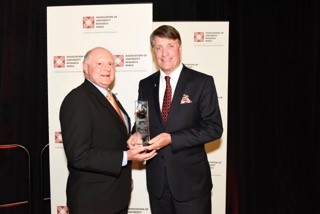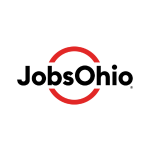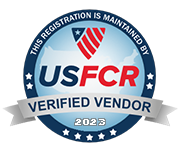Research Park NewsSubscribe to the Newsletter
|
|
University City Science Center Is an Economic Catalyst for Greater Philadelphia June 15, 2016 Graduate firms and current residents of the University City Science Center’s business incubators support one out of every 100 jobs in Greater Philadelphia and drive nearly $13 billion in economic activity in the region, according to new analysis released today by the Economy League of Greater Philadelphia and Econsult Solutions, Inc. The University City Science Center: An Economic Catalyst for Greater Philadelphia study quantifies benefits associated with the Science Center’s business incubation services including job growth, salaries and wages, economic output, and fiscal impact. Notable findings from the study include:
“Supporting innovation and entrepreneurship is a double reward when it leads to the creation of well-paying jobs that boost our regional economy and support Greater Philadelphia’s role as an innovation hub,” says Science Center President & CEO Stephen S. Tang, Ph.D., MBA. “The Science Center’s core strength in tech-based economic development serves as the foundation for our future expansion as we grow uCity Square and continue to offer programs that drive Greater Philadelphia’s economy forward.” “The Science Center, a key component within Greater Philadelphia’s innovation community, has played a major role in University City’s ongoing transformation into a world class hub for innovation,” says Economy League of Greater Philadelphia Executive Director Steve Wray. “As we work together to ensure Greater Philadelphia is a place where entrepreneurs can grow businesses and bring innovative ideas to the marketplace, understanding the value of the Science Center’s business incubation support services is crucial.” Click here to read the complete report.
Huntsville lands prestigious 2017 conference in Cummings Research Park May 11, 2016 Cummings Research Park will welcome more than 200 professionals next year during the Association of University Research Parks' conference in Huntsville. The City of Huntsville announced today it will host the international conference for the first time in fall 2017. It's a major coup for Research Park, which is developing a master plan that will transform the technology hub in Huntsville. The city had been trying to lure the AURP conference to Huntsville for a decade when new Research Park Director Erin Koshut stepped in and made it happen. "It's going to have a huge impact, partly because we're exposing people from all over the world to the Huntsville market," said Judy Ryals, president and CEO of the Huntsville/Madison County Convention & Visitors Bureau. "We feel like we're going to get some tourism benefit from it in the future as well as additional conferences once they see all that we have to offer." The multi-day conference will take place within Research Park at the new Student Services building at the University of Alabama in Huntsville and the Westin at Bridge Street Town Centre. Koshut said it will occur during the 55th anniversary of the park in late September or early October of next year. The event will feature leading Research Park directors and economic developers from across the U.S. and world, including Canada, Australia, France, Germany, Saudi Arabia and more. "Attendees will look forward to learning the long-term success of Cummings Research Park and the engagement of (UAH) President (Bob) Altenkirch and the leadership and research at the University of Alabama and the entire Huntsville community," said AURP Director of Operations and Events Vickie Palmer.
April, 2016 In the early 1980s, the idea of university-related research parks began to pique the interest of business leaders around the world. These unique planned properties offered close proximity to university researchers, student workforces, and the cutting-edge discoveries in science and technology that could lead to commercial success for the companies that took notice. While each has its own unique approach and focus, numerous university research parks have sprung up over the past few decades. Traditionally, these facilities are located on open land masses near the universities that sponsor them, with goals to boost economic development and university reputations by successfully commercializing faculty research. In recent years, as universities have dealt with tightened budgets, their research parks have taken on new and important roles. Most higher education institutions no longer have sufficient funding available to sustain the original parks model. Now, the hope is that more-comprehensive innovation centers—supported by successful companies founded on faculty research—will help sustain the universities and their local communities. It's a viable goal, and one that many parks are successfully reaching, but not without facing new challenges and experimenting with innovative solutions. "The key priorities for university research parks are that they become self-sustaining and even become a source of revenue for the universities," says Charles D'Agostino, executive director of LSU Innovation Park at Louisiana State University, Baton Rouge, and president of the Association of University Research Parks (AURP). "With the budget cuts facing all universities nationally, we can no longer count on university funding to develop the parks." In addition to new budget realities, universities and their research parks face increasing competition around the world. "Countries like China and Singapore are ramping up their research efforts, while our federal research funding is flat or declining," says David E. Daniel, deputy chancellor of the University of Texas System. "An example of our competition is the multibillion-dollar One North, in Singapore, one of the largest and most impressive research parks in the world. Though not located directly on a university campus, research and development at One North is intricately linked with Singapore universities, serving as integrator of innovation from universities and businesses." Read more via Nancy Mann Jackson and NACUBO.org Blackstone to buy BioMed Realty in $8 billion deal October 8, 2015 Blackstone Group LP agreed to buy BioMed Realty Trust Inc, a supplier of office space to healthcare companies, in a deal valued at $8 billion, adding to the private equity firm's huge real estate portfolio. AURP Elects New Board Members and Executive Officers October 7, 2015 The Association of University Research Parks (AURP) today announces the election of its new 2016 board members and the election of new executive officers. Charles D’Agostino, MBA, Executive Director of the LSU Innovation Park, will complete the second year of his two-year term as President of its Board of Directors in 2016. Greg Hyer, Associate Director of the University of Wisconsin, Madison Research Park will serve as Vice President. Ken Marcus, Director of UA Tech Parks and Chief Financial Officer of the University of Arizona Science and Technology Park will serve as Treasurer, and Mason Ailstock, Chief Operating Officer of Research Triangle Park will serve as Secretary. Kevin Byrne, President of The University Financing Foundation, will continue as Past President of AURP.
|
|
AURP 2015 AWARDS OF EXCELLENCE October 1, 2015 University of Maryland Research Park Wins 2015 Outstanding Research Park Award
AURP President Charles D’Agostino, Executive Director of the Louisiana State University Innovation Park with Brian Darmody, Associate Vice President for Campus and Foundation Relations at the University of Maryland College Park.
The UM Research Park is a public-private partnership between Corporate Office Properties Trust and the University of Maryland (UMD). UMD works with all Research Park companies to provide synergistic and collaborative opportunities. The Research Park offers locations from incubator space for start up companies to build-to-suit options for larger technology clients. “Not only is our research park the largest in the state, but it stimulates major partnerships among private, federal, and academic scientists,” said University of Maryland President Wallace D. Loh. “It helps make Greater College Park a major international hub of climate, food and language research, and the park will only grow in importance as our new startup innovation district develops next to it,” he added. “The national recognition for the UMD Research Park by AURP is testament to the hard work of many people over many years at the University of Maryland,” said Brian Darmody, Associate Vice President for Corporate and Foundation Relations at the University of Maryland, who is also a past president of AURP. “I am pleased our park is being recognized not just for what it is, but what it portends for the future of university research parks as places to live, learn and earn.” The UMD Research Park environment provides employment for over 3,000 people in a variety of fields, and uniquely links government, university and private sector entities focusing on language science, environmental science, and food safety. |
|
The Accelerator Centre Announces Major Expansion of Incubation Services August 5, 2015 Reactor provides new capacity for additional 30+ early-stage tech companies Reactor, the new 8,000 square foot facility located in the Innotech Building in the David Johnston Research + Technology Park, represents a significant expansion in both space and capacity for the organization. Dedicated to early-stage clients in the AC Momentum program, Reactor nearly doubles the number of companies that the AC will house, allowing it to help even more technology startups with its world-recognized mentorship and programming. “AC Momentum was launched in the fall of 2014 to address the growing number of early-stage companies that were coming to us, but weren’t ready to enter our flagship Accelerator Program,” explains CEO Paul Salvini. “We could see the tremendous potential of these companies and, rather than turn them away, we created AC Momentum and developed a one-year curriculum that is tailored to the needs of early-stage companies; validating their idea and preparing them to enter the Accelerator Program and start scaling their business."
|
|
East Baltimore-based CDI Laboratories, a success story of the Science + Technology Park at Johns Hopkins, presents at White House Demo Day August 5, 2015 One of the lead entrepreneurs and success stories of East Baltimore’s Science + Technology Park at Johns Hopkins was invited to the White House on Tuesday to share its work with President Barack Obama. CDI Laboratories, a biotechnology company with locations in Baltimore, Maryland and Mayaguez, Puerto Rico, was asked to participate in the first “White House Demo Day,” an event designed to showcase the work of entrepreneurs from around the country and all walks of life. CDI Labs joined approximately two dozen other innovators and 200 attendees at the White House East Room on August 4th, 2015.
|
|
APLU Announces Designation of 18 Institutions in the 2015 Class of Innovation & Economic Prosperity Universities June 24, 2015 In recognition of a strong commitment to economic engagement, the Association of Public and Land-grant Universities (APLU) designated 18 public institutions in the 2015 class of Innovation & Economic Prosperity Universities. The designation acknowledges universities working with public and private sector partners in their states and regions to support economic development through a variety of activities, including innovation and entrepreneurship, technology transfer, talent and workforce development, and community development. Each university received the designation after conducting a thorough self-review with outside stakeholder input and subsequently submitting an application that went through a rigorous independent review process. The 18 institutions that comprise the third annual class of Innovation and Economic Prosperity Universities are (AURP members are in bold): Auburn University; Binghamton University; Clemson University; East Carolina University; Mississippi State University; New Jersey Institute of Technology; New Mexico State University; Ohio University; Southern Illinois University; University of Arizona; University of Kansas; University of Louisville; University of Maryland; University of Nebraska-Lincoln; University of New Mexico; University of South Florida; Utah State University; and Western University.
University City Science Center to Double in Size June 2, 2015 The University City Science Center and Wexford Science + Technology, a BioMed Realty company, are joining forces to significantly expand the Philadelphia-based Science Center and accelerate the creation of a globally recognized innovation district for science and technology companies. As a result of this joint venture, the Science Center has the potential to double in size as it and Wexford explore joint development opportunities for nearly four million square feet of office, laboratory, residential, retail facilities and structured parking over the next 10 years. These opportunities include development of the former University City High School (UCHS) site, adjacent to the Science Center, and the three remaining open parcels on the Science Center’s existing campus: 3400, 3800 and 3850 Market Street. |























